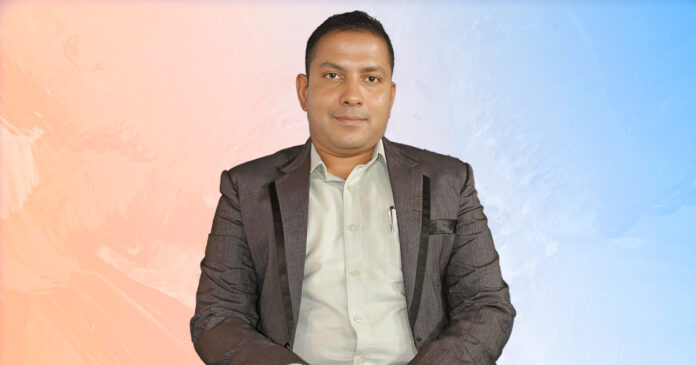In this exclusive interview with Global CEO Magazine, Dr Dilhan Jayatilleke ,Vice President of Sri Lanka Institute of Marketing provides valuable insights into how SLIM has weathered unprecedented challenges such as the COVID-19 pandemic and the subsequent economic crisis.
His leadership has been instrumental in helping the organisation remain resilient and responsive to the needs of Sri Lanka’s Marketing and Business sectors. From launching impactful National Campaigns to revamping Education programmes Dilhan Jayatilleke shares the strategies and leadership qualities that have enabled SLIM to continue thriving amidst uncertainty, while also looking ahead to the future of Sri Lanka’s business environment.
Q: Sri Lanka has faced significant market and economic disruptions in the past few years. What strategies did your organisation implement to overcome these challenges?
A: Well, it all started with the COVID-19 pandemic, and soon after that, we were hit by the economic crisis, which was something none of us had experienced before. At the Sri Lanka Institute of Marketing (SLIM), we had to focus on two main aspects – resilience during COVID-19 and adapting to the subsequent economic challenges.
During the pandemic, we launched the “Restart Sri Lanka” campaign. As the national body for marketing, we felt it was not only our responsibility to survive as an organisation but also to help the country persevere. Through this campaign, we awakened the entire nation, empowering not just the large conglomerates but also medium, small-scale, and micro-entrepreneurs.
As the economic crisis unfolded, we were also affected, as our core revenue sources come from education and national events. We host seven major events each year, and all of them were impacted. We had to take corrective measures, ensuring our initiatives remained cost-effective. Our staff, who were incredibly resilient after handling the pandemic, played a significant role in navigating this tough period. Thanks to their hard work and our strong relationships with Corporates, we managed to sustain ourselves. Our success was rooted in our long-standing networks and the value we’ve provided for over 50 years.
Q: What changes did you make within the organisation to adapt to the evolving market and remain competitive in such uncertain times?
A: Education is a key revenue stream for us, so we first focused on that. We recognised that certain areas, like technology, were gaining prominence during the crisis, and we identified opportunities in this space. We started incorporating programmes on AI, Data Analytics, and Digital Marketing social media into our curriculum. Our goal has always been to move beyond theoretical education and focus on practical applications, ensuring our students are well-prepared to perform in the workplace.
Additionally, we developed programmes to enhance the skills of the workforce. As the country recovered from the crisis, it became clear that people needed to be more resourceful and technically proficient. Our mandate goes beyond simply running a business; we have a national responsibility to equip the workforce with the necessary skills to drive the economy. This approach not only supports our business but also serves the country.
Q: Leadership plays a crucial role in navigating such turbulent times. What leadership qualities do you believe are essential for steering an organisation through periods of instability?
A: In my experience, two leadership styles have been particularly effective. First is coaching leadership, where we value our human resources above all else. Even during the most challenging times, we ensured that there were no salary or allowance reductions. We believe that employees should be trained well enough to be employable anywhere and at the same time treated well enough so that they never want to leave. This principle has helped us maintain a loyal and motivated workforce.
Secondly, our organisation operates with a very democratic leadership style. We listen to our employees and consider their input when making decisions. This collaborative environment fosters innovation and keeps our staff engaged. I believe these two qualities – coaching and democratic leadership – have been instrumental in our success during these difficult times.
Q: The business environment is constantly evolving. How do you see Sri Lanka’s business landscape changing over the next five years, and what key factors will drive growth and success?
A: The next five years will undoubtedly be challenging, but I believe the biggest hurdle we face is the human resource issue. Many young people are eager to leave the country, even those who may not be highly qualified, seeking opportunities abroad where they feel they have a better chance of success. This trend either indicates a lack of opportunity in Sri Lanka or that these opportunities are not being properly communicated.
However, there are many success stories of Sri Lankans who have built thriving careers here. The problem is that many young people are not equipped to recognise and explore the opportunities available within the local market. Our education system needs to focus on preparing students for these opportunities from the outset, encouraging a mindset shift towards innovation and creativity entrepreneurship and self-growth.
Another factor to consider is the mindset of Gen Z. They tend to ask questions like, “Why should I do this?” and “What’s in it for me?” This is a valid approach, and organisations need to adapt to this mindset. Young people today acquire knowledge quickly, often through digital devices, and they expect meaningful engagement and purpose in their work. We need to foster an environment that addresses these expectations, encourages curiosity, and supports their quest for knowledge.
If we can address these two key issues – retaining talent in the country and adapting to the needs of the younger workforce – I believe Sri Lanka’s business landscape will continue to grow and evolve positively over the next five years.


